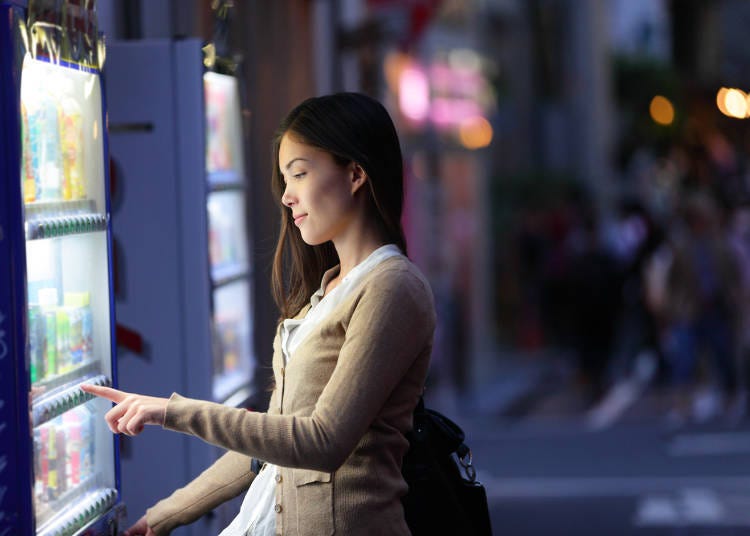
“This Is Japanese Hospitality!” — What Surprises Foreign Visitors Most About Service in Japan
- Written by: Chiemi Matsumura
One thing I often hear from people from other countries living in Japan is, “Japan has so many services that we don’t have back home!” It’s true—whether for better or worse, the idea that “the customer is god” is deeply rooted here, and you can expect polite, attentive service almost anywhere you go.
So this time, we asked 27 people from various countries what aspects of Japanese service impressed them the most. What may seem completely normal to those of us living in Japan often comes across as something truly exceptional to visitors. (The following are personal opinions shared by survey participants.)
Trains run frequently and on time—Japan’s railway system is incredible!

The most praised service among foreign residents was Japan’s public transportation—particularly its trains. Many were amazed by how punctual and frequent the trains are compared to those in their home countries.
“I think it’s amazing how trains are always on time. And they come so often that even if I miss one, it’s not a big deal. In Australia, delays are super common,” said a woman in her 20s from Australia.
“There are so many trains! If you wait just a little, another one comes. I think the Yamanote Line is especially amazing—you can get to all the popular places like Shibuya, Shinjuku, and Ikebukuro,” said a teenage boy from China.
“In Myanmar, the public transport system isn’t very developed, so I think Japan’s extensive railway network is really convenient. Unlike cars, trains are punctual and rarely delayed,” said a man in his 20s from Myanmar.
It’s true—if you live in Tokyo, you rarely need to check a timetable. Trains come so frequently that you can hop on one within 10 minutes, and most major destinations are within an hour’s reach. For those coming from places where public transport is less reliable or less developed, Japan’s system must feel like a dream. That said, this kind of ultra-convenient schedule is mostly limited to urban areas; in the countryside, some trains only come once or twice an hour.
Bus drivers who care about passengers’ safety—their thoughtfulness is moving!

There were also positive comments about the quality of bus services in Japan.
“I think it’s great that buses come to a complete stop—it’s much safer. In Korea, there are so many cars, and buses often start moving before passengers have even sat down. Sometimes they don’t even stop at the designated location. But in Japan, buses stop exactly where they’re supposed to, and the driver waits until everyone is seated before departing. That’s really kind. It’s very good service—totally different from Korean buses.” (Korea / Male / 30s)
“When getting off the bus, I really appreciate that the driver waits until passengers have fully stepped off. It makes it safer for elderly people too.” (Korea / Female / 20s)
It’s true—bus drivers in Japan generally wait until passengers are seated or holding onto a strap before setting off. And when getting off, they don’t rush anyone and wait until everyone has disembarked. That kind of attention to safety really matters.
Japan’s convenience stores really do make everyday life more convenient.

Next on the list were comments from people amazed by Japanese convenience store services.
“Amazing service at convenience stores. They’re everywhere, they have everything, and the staff are polite and helpful too.” (Australia / 20s / Male)
“Japanese convenience stores are incredible! You can get any daily necessities, and they even have copy machines, fax machines, ATMs, and you can pay utility bills there! You can take care of everything in one stop. In Malaysia, convenience stores mostly just sell food and drinks.” (Malaysia / 20s / Female)
“When I bought a lot of things at a convenience store, they separated the bags—one for drinks and one for food. They even separated hot and cold items! I was surprised by that kind of thoughtfulness.” (Korea / Teens / Female)
Japanese convenience stores truly live up to their name. Beyond food, drinks, and daily necessities, many stores now offer services like picking up online orders or retrieving clothes from the cleaners. It’s hard to imagine life without them.
The common thread in Japanese service: The spirit of thoughtful “Omotenashi”

Many foreigners also have a general impression that Japanese store staff are simply very kind, beyond any specific service.
“I was so happy the first time I shopped at a store when the clerk carried my shopping bag all the way to the exit.” (Italy / 20s / Female)
“A year after buying clothes at a shop in Harajuku, a button fell off. When I brought it back, they repaired it for me. Even though it was an old item and they didn’t have the same button, they replaced all the buttons with new ones. That made me really love Japan!” (USA / 30s / Male)
“I think Starbucks staff in Japan are way kinder than abroad. Not only are they polite, but they’re cheerful too.” (USA / 30s / Male)
“Everything is amazing. I don’t think the Japanese spirit of service exists anywhere else.” (Hawaii / 20s / Male)
This really seems to come down to the uniquely Japanese spirit of omotenashi. The desire to make customers feel comfortable and to love their products clearly comes through—even to foreign visitors.
Small touches and systems that make a big difference—Surprisingly appreciated services in Japan

There were also some unexpected comments from foreigners that might surprise Japanese people.
“I think the health insurance system is amazing. In the U.S., you have to buy private health insurance yourself.” (USA / 20s / Female)
“At banks, there’s usually someone guiding you before you reach the counter. When I was unsure where to line up, they asked, ‘How can I help you?’ and showed me where to go. That was really kind!” (Korea / Teens / Female)
“There are so many vending machines everywhere. It’s convenient and amazing.” (China / 20s / Female)
“I like that toothpicks are included inside the disposable chopstick wrappers.” (Korea / 20s / Male)
“I’m happy that some stores still offer free plastic bags. In Korea, you have to pay for them.” (Korea / 20s / Female)
When you think about it, all these little conveniences really make life easier. We take them for granted, but losing them would be a big hassle. It shows how comfortable life in Japan really is.
Japan is a country known for its high-quality, thoughtful hospitality. Of course, there are issues like long working hours and difficult customers, but the genuine spirit of wanting to please customers is something worth preserving. Each act of kindness toward foreigners helps create fans of Japan and could encourage even more tourism.
Survey Participation
-
Akamonkai Japanese Language School Main Campus学校法人 新井学園 赤門会日本語学校 本校
- Address 6-39-12 Higashi-Nippori, Arakawa-ku, Tokyo 116-0014
A film writer and web director who spends her days shuttling between home, movie theaters (screening rooms), interview locations, and bars. She worked as an editor for a movie information site for about eight years starting in 2001. In 2009, she became a freelancer. Besides writing, she also takes on various web direction projects.
*Prices and options mentioned are subject to change.
*Unless stated otherwise, all prices include tax.
Popular Tours & Activitiess
Recommended places for you
-
Appealing

Rukku and Uohei
Izakaya
Sapporo / Chitose
-

Kambei Sannomiyahonten
Yakiniku
Kobe, Sannomiya, Kitano
-

Jukuseiniku-to Namamottsuarera Nikubaru Italian Nikutaria Sannomiya
Izakaya
Kobe, Sannomiya, Kitano
-

ISHIDAYA Hanare
Yakiniku
Kobe, Sannomiya, Kitano
-

Kanzenkoshitsuyakinikutabehodai Gyugyu Paradise Sannomiya
Yakiniku
Kobe, Sannomiya, Kitano
-
Goods

Yoshida Gennojo-Roho Kyoto Buddhist Altars
Gift Shops
Nijo Castle, Kyoto Imperial Palace
-

Top 3 OSHI MAPs for the Best Matcha and Sweets in Tokyo
by: Guest Contributor
-
Ad

The Latest Guide to "Tourism Mobility": Traveling Japan More Freely. What exactly are Japan’s version of ride-sharing and transit deserts?
-
Ad

Japan’s Land of Yokai Monsters and Spooky Stories! A Deep Journey to Mysterious San’in (Tottori & Shimane) for Seasoned Travelers
-
Ad

The Whisper of a 1,300-Year-Old History: Meet the Other Face of Nara at Night
by: Shingo Teraoka
-

Farewell, Heavy Suitcases! Keisei Ueno’s New Service Makes Your Last Day in Tokyo Totally Hands-Free
by: Guest Contributor
-

PokéPark KANTO Is Finally Open! Tokyo's New Pokémon World Starts Before You Even Arrive (2026)
by: Guest Contributor
-

Tuna Bomb & More: Summer 2021's Wild Lineup at Conveyor Belt Sushi Restaurants in Japan Will Leave You Awestruck!
by: Ran Tanaka
-

Sweets, Snacks & More: Top 7 Popular Spots Around Tokyo’s Historical Asakusa Area!
-

Sumikawa Snow Park: Skiing in Northern Japan's Breathtaking Backcountry
-

Dakigaeri Gorge: Stroll Beside Aqua-Blue Streams and Brilliant Autumn Leaves in Akita
by: Guest Contributor
-

Best Outlet Malls Near Sendai: Shopping, Souvenirs, and Discounts
-

Loved by Young and Old: The Culinary Roots of Japan's Favorite Sauces and Seasonings
- #best sushi japan
- #what to do in odaiba
- #what to bring to japan
- #new years in tokyo
- #best ramen japan
- #what to buy in ameyoko
- #japanese nail trends
- #things to do japan
- #onsen tattoo friendly tokyo
- #daiso
- #best coffee japan
- #best japanese soft drinks
- #best yakiniku japan
- #japanese fashion culture
- #japanese convenience store snacks













